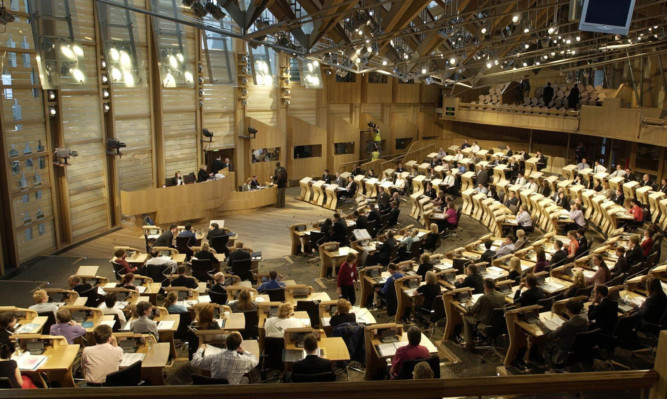Scotland’s new package of powers may not be workable and could require an entirely new method of funding devolved governments, leading academics have warned.
The Institute for Fiscal Studies (IFS) says it is not possible to guarantee the new powers will cause no detriment to Scottish and UK budgets.
A new joint paper, co-written by the University of Stirling and the Centre for Constitutional Change, said the Barnett formula that calculates Scotland’s share of UK spending should be reformed.
This would defy a key recommendation of the Smith Commission that Barnett should be retained – but failure to find an appropriate funding mechanism could cost Scotland a billion pounds a year, IFS said.
First Minister Nicola Sturgeon has refused to back the Scotland Bill unless it comes with an appropriate funding formula, a stance backed by devolution architect Lord Smith of Kelvin, who said politicians should not sign off the Bill without a working fiscal framework.
The House of Lords Economic Affairs Committee, in a report entitled A Fracturing Union? published on Friday, argues the process for determining the fiscal framework is flawed and that its design principles may not be workable and are not mutually compatible.
IFS said it is not possible to satisfy all of the Smith Commission’s “no detriment” principles.
It also claimed that the precise way in which the remaining block grants are calculated and indexed over time could mean differences of over a billion pounds a year in the Scottish Government’s budget in the space of a decade or so.
If an unreformed Barnett formula remains in place it is impossible to design a system that simultaneously satisfies the Smith Commission’s principles that there should be “no detriment as a result of the decision to devolve a power”, and that post-devolution changes to a devolved tax in the rest of the UK should not affect the amount of public spending in Scotland, IFS said.
David Bell, professor of economics at Stirling University and co-author of the report, said: “The options available for calculating the block grant adjustments and other elements of the fiscal framework will have major effects on the Scottish Government’s budget and the fiscal risks and incentives it faces.
“These issues should be part of the public and parliamentary debate, as much as the tax and welfare powers set out in the Scotland Bill itself have been.”
David Phillips, a senior research economist at the IFS and co-author, said: “It may now be time for a more fundamental reassessment of how the devolved governments are financed: including whether the Barnett Formula should be reformed.
“Reform of Barnett may remove some of the conflicts between the Smith Commission’s principles that we have identified.
“The Smith Commission parked these issues to one side by committing to the current Barnett formula. Making the UK’s fiscal framework sustainable for the long term may require reopening the debate.”
